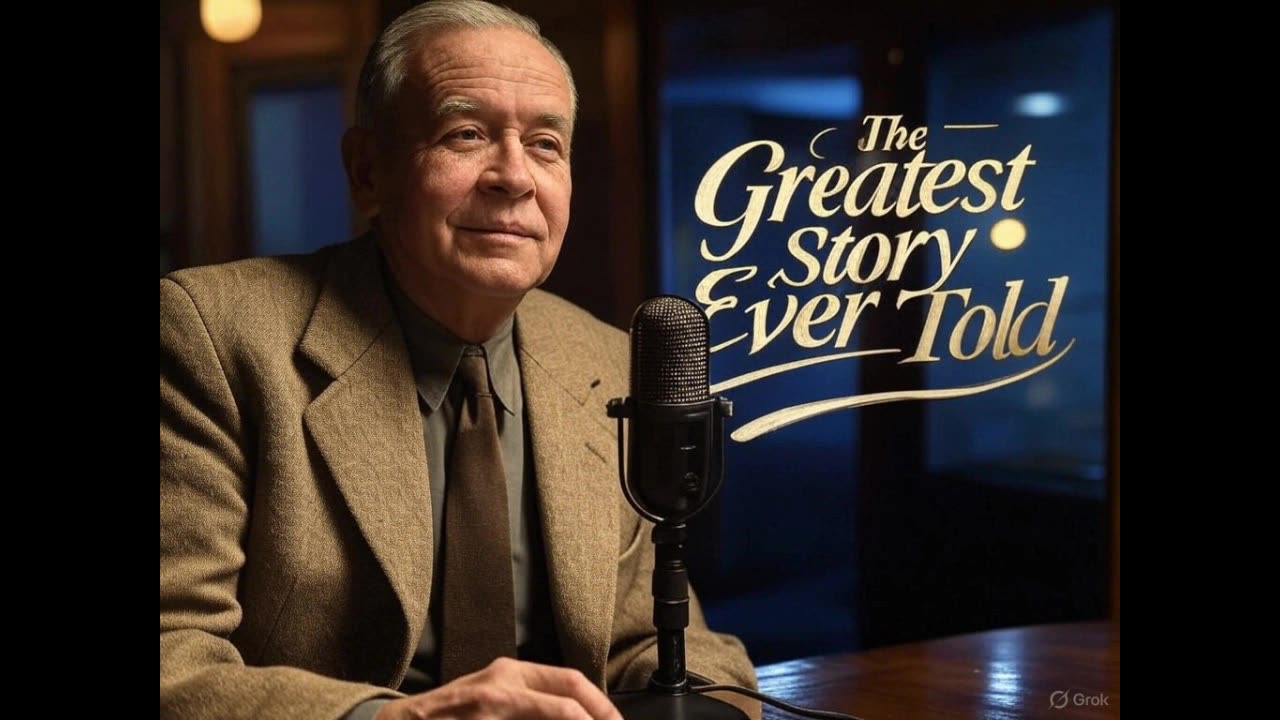Premium Only Content

greatest story ever told episode Joseph and His Brothers
Joseph and His Brothers
Setting: Ancient Canaan and Egypt, tracing Joseph’s journey from favored son to Egyptian governor.
Plot:
Favoritism and Envy: Joseph, Jacob’s beloved son, receives a multicolored coat, sparking jealousy among his eleven brothers. His dreams of ruling over them deepen their resentment. The episode likely opens with warm exchanges between Joseph and Jacob, contrasted by the brothers’ bitter murmurs, enhanced by orchestral tension.
Betrayal: While tending flocks, the brothers seize Joseph, cast him into a pit, and sell him to Ishmaelite traders for twenty pieces of silver. They present his bloodied coat to Jacob, who mourns, believing Joseph dead. Sound effects like shouts or clinking coins may dramatize the betrayal.
Trials in Egypt: In Egypt, Joseph serves Potiphar faithfully but is imprisoned after false accusations by Potiphar’s wife. His faith sustains him as he interprets dreams for fellow prisoners (Pharaoh’s cupbearer and baker). The drama likely emphasizes Joseph’s quiet strength through introspective dialogue.
Rise to Power: Joseph interprets Pharaoh’s dreams of seven years of abundance followed by famine, earning appointment as Egypt’s governor to manage grain stores. The chorus may underscore his rise with triumphant music, reflecting divine favor.
Reconciliation: During the famine, Joseph’s brothers seek grain in Egypt, unaware he is the governor. After testing their remorse, Joseph reveals his identity in an emotional climax, forgiving them and affirming God’s plan to save lives. The episode likely ends with Jacob’s joyful reunion with Joseph and the family’s resettlement in Egypt, reinforced by a solemn choral close.
Themes: Forgiveness, trust in God’s providence, and redemption, with Joseph’s line—“You meant evil, but God meant it for good”—as a moral centerpiece.
Cast and Roles:
Joseph: The lead role, portrayed by an unnamed actor, as the series deliberately avoided crediting performers to maintain focus on the story. The actor would depict Joseph as pious, resilient, and compassionate, with a voice conveying both youthful sincerity and mature wisdom.
Jacob (Israel): Joseph’s father, also played by an anonymous actor, portrayed as a loving but grieving patriarch, with emotional depth in scenes of loss and reunion.
Joseph’s Brothers (e.g., Reuben, Judah): A group of unnamed actors, with distinct voices to differentiate key brothers like Reuben (who tries to save Joseph) and Judah (who later shows remorse). Their roles shift from hostility to repentance.
Potiphar and Potiphar’s Wife: Minor roles by anonymous actors, with Potiphar’s wife likely portrayed with cunning and Potiphar as stern but trusting.
Pharaoh: An unnamed actor, depicted as authoritative yet reliant on Joseph’s wisdom, with a commanding tone.
Supporting Roles: Includes Ishmaelite traders, prisoners (cupbearer and baker), and Egyptian officials, all played by anonymous ensemble actors, contributing to the narrative’s scope.
Narrator: Likely present to frame the story, an unnamed voice providing context and moral reflections, typical of the series’ style.
Note on Cast: While Warren Parker is known to have played Jesus in New Testament episodes, there’s no evidence he played Joseph. The series’ policy of anonymity means specific actor names for this episode are unavailable, as confirmed by sources like otrcat.com and radiogoldindex.com.
Production Details:
Music: Composed by William Stoess, performed by a 35-piece orchestra and 16-voice chorus, enhancing emotional peaks like Joseph’s betrayal and reunion.
Director: Marx Loeb, ensuring a reverent tone.
Writer: Henry Denker, adapting Genesis with King James-style dialogue.
Sponsor: Goodyear Tire and Rubber Company, with no commercials, only a closing sponsorship mention.
-
 45:26
45:26
The Why Files
3 days agoCONPLAN 8888: The Secret Plan to Survive the Zombie Apocalypse
15.6K26 -
 10:56
10:56
Liberty Hangout
2 days agoThank You Charlie
183K48 -
 1:49:51
1:49:51
Steve-O's Wild Ride! Podcast
8 days ago $4.42 earnedChet Hanks Found God On Chat GPT | Wild Ride #266
61.4K6 -
 2:18:15
2:18:15
Badlands Media
7 hours agoOnlyLands Ep. 25: Erica Kirk Steps Up, Antifa Fallout, and Global Sparks
79.6K22 -
 2:05:01
2:05:01
TimcastIRL
10 hours agoTrump Just Ended H1B Visas In Major Crackdown, Charging $100k Per Visa | Timcast IRL
290K191 -
 4:02:20
4:02:20
Nerdrotic
16 hours ago $27.76 earnedKimmel MELTDOWN | Hollywood Boycotts Disney | Friday Night Tights 372 with Kaida
130K21 -
 34:08
34:08
Bannons War Room
10 hours agoMEGYN KELLY: Jimmy Kimmel and Sore Cultural Losers, and Charlie Kirk's Spiritual Revival, w/ Bannon
90.2K91 -
 59:27
59:27
NAG Podcast
11 hours agoBrandon Straka: BOLDTALK with Angela Belcamino
83.8K11 -
 59:43
59:43
Sarah Westall
9 hours agoVietnam Shuts down 86 Million Bank Accounts, The Fourth Turning & more w/ Andy Schectman
64.2K17 -
 1:17:51
1:17:51
Flyover Conservatives
16 hours agoMary Flynn O’Neill and Clay Clark: The Church Must Rise or America Falls | FOC Show
63.3K12